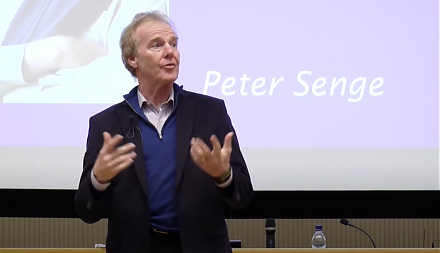

Home > Library > The cross-country evolution of corporate ownership and governance
Author Andy Yeh Alpha
This research article provides our mathematical analysis of the gradual evolution of corporate ownership concentration around the world.
Description:
We derive and develop a simple and intuitive model that shines fresh light on the relentless debate over whether corporate ownership converges to the Berle-Means modern corporation with high stock ownership dispersion. Our model takes into account the importance of both protective legal institutions and firm-specific asset arrangements. The main analytical result is that incumbent stock ownership concentration either persists or declines depending on the relative importance of these protective arrangements. Specifically, our model predicts: (a) high stock ownership dispersion in nations that impose legal limits on blockholders's clout to expropriate minority shareholder rights, and (b) high stock ownership concentration in nations that primarily rely on asset specificity as a form of investor protection. In this view, both the path-dependency and convergence theories complement each other in the broader context of corporate governance.
Our empirical analysis of international data suggests at least partial convergence toward the Berle-Means modern corporation with high stock ownership dispersion. It is thus plausible to infer the existence of path-dependent forces on corporate ownership concentration. Nevertheless, this result does not preclude the more dynamic form of functional convergence toward greater stock ownership dispersion through the general tendency of non-U.S. public firms to cross-list on the major U.S. stock exchanges. This trend introduces stringent disclosure and governance requirements to a wider set of multinational corporations. In essence, these empirical results suggest a case for the co-existence of the path-dependency and functional-convergence stories. These complementary stories arise as stable mates and represent some partial elements of truth in explaining the cross-country variation in corporate ownership and governance structures.
2018-02-11 07:30:00 Sunday ET

President Trump unveils his ambitious $1.5 trillion public infrastructure plan. Trump proposes offering $100 billion in federal incentives to encourage stat
2019-04-13 14:28:00 Saturday ET

Saudi Aramco unveils the financial secrets of the most profitable corporation in the world. In its recent public bond issuance prospectus, Aramco offers the
2019-07-07 18:36:00 Sunday ET

The Chinese central bank has to circumvent offshore imports-driven inflation due to Renminbi currency misalignment. Even though China keeps substantial fore
2019-08-30 11:35:00 Friday ET

The conventional wisdom suggests that chameleons change their skin coloration to camouflage their presence for survival through Darwinian biological evoluti
2017-09-25 09:42:00 Monday ET

President Trump has allowed most JFK files to be released to the general public. This batch of documents reveals many details of the assassination of Presid
2020-08-05 08:33:00 Wednesday ET

Business leaders often think from a systemic perspective, share bold visions, build great teams, and learn new business models. Peter Senge (2006) &nb